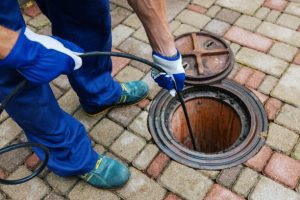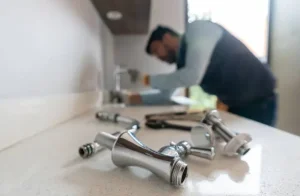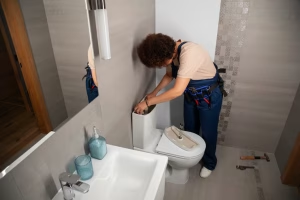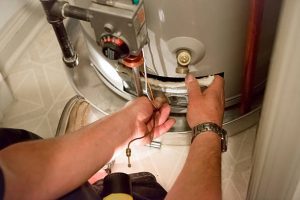Introduction: Stop Plumbing Disasters Before They Start
Plumbing emergencies rarely give advance notice, but the warning signs are often there. Many homeowners overlook small problems until they become major disasters. However, learning how to spot a plumbing emergency before it happens can help prevent costly damage. Early detection not only protects your home, but also keeps water bills and repair costs low. From strange smells to unusual noises, your plumbing system often signals when something is wrong. Knowing what to watch for—and when to call a licensed professional plumber—can make all the difference.
Unusual Sounds from Pipes or Fixtures
Rattling pipes or loud gurgling noises are more than just annoying. They can indicate serious plumbing issues forming beneath the surface. When water can’t flow freely, air pockets form and create those unsettling sounds. Water hammers—loud banging noises after shutting off a faucet—can stress your pipes over time. If left unchecked, this pressure may lead to cracks or bursts. Listening closely helps you catch problems early. If the noises persist or worsen, it’s time to contact a licensed professional plumber. Taking action early prevents larger, more expensive emergencies later.
How to Spot a Plumbing Emergency Before It Happens: Changes in Water Pressure
A sudden drop in water pressure is rarely just a fluke. It’s often a red flag for leaks, clogs, or pipe corrosion. If only one fixture is affected, the problem may be localized. But if pressure drops throughout your home, your main line could be at risk. Inconsistent flow from faucets or showerheads can also signal buildup inside pipes. Don’t ignore these changes—addressing them early helps prevent major issues. If you notice reduced pressure that doesn’t improve, call a licensed professional plumber for an inspection. This quick step could save you from major water damage down the line.
Persistent Drain Clogs and Slow Water Flow
Occasional clogs happen, but frequent blockages can mean a deeper issue. Grease, hair, or debris buildup might be the cause. However, if drains throughout your home slow down at once, you may have a sewer line problem. Backups, foul odors, or bubbling toilets are strong warning signs. Clearing the drain temporarily won’t fix the underlying issue. Ignoring it can result in raw sewage backing up into your home. When you spot these signs, it’s critical to act fast. Call a licensed professional plumber to assess the problem and prevent a full-blown emergency.
How to Spot a Plumbing Emergency Before It Happens: Damp Spots and Water Stains
Unexplained damp spots on walls, ceilings, or floors should never be ignored. They often indicate a hidden leak inside the plumbing system. Over time, moisture damages drywall, flooring, and insulation. Mold and mildew may also develop, creating health concerns. These signs can appear gradually, but act fast when they do. If you spot discoloration, warping, or a musty odor, investigate further. A licensed professional plumber can use tools to detect and locate hidden leaks. Addressing these small signs early can prevent thousands of dollars in damage and long repair timelines.
Discolored Water and Unpleasant Odors
If your water changes color or starts to smell, don’t assume it’s temporary. Rust-colored water could signal pipe corrosion. Odd smells—especially sulfur or rotten egg odors—might indicate bacteria in your water heater or sewer gas leaks. These aren’t just quality-of-life issues; they point to deeper plumbing trouble. Water should always be clear and odor-free. When it isn’t, take it seriously. Turn off affected fixtures and consult a licensed professional plumber to diagnose the cause. Ignoring discolored or smelly water may lead to contamination, pipe failure, or emergency repairs.
Conclusion: Stay Ahead of Costly Emergencies
Plumbing emergencies rarely come without warning. By learning how to spot a plumbing emergency before it happens, you stay one step ahead. Unusual sounds, water pressure changes, persistent clogs, and damp spots are signs worth investigating. Acting quickly can prevent extensive property damage and save thousands in repairs. While small fixes may seem manageable, only a licensed professional plumber can ensure your system is safe and sound. Don’t wait for disaster—pay attention to the signs and schedule inspections when something feels off. Your plumbing system—and your wallet—will thank you.





